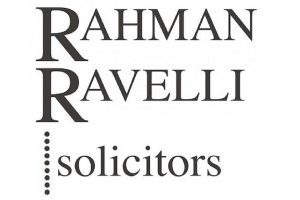Managing a raid on your premises

Aziz Rahman of award-winning business crime solicitors Rahman Ravelli explains what to do if your premises is the subject of a raid by the authorities.
Real-life raids can make the headlines while fictional ones are regularly used to liven up police TV dramas. But while the reality of raids may often not be particularly newsworthy or dramatic, it is important that those in business know exactly how to respond should they be the subject of one.
Raids are more common than many people would imagine. They can involve the seizure of documents, digital material, computers and communications equipment. This can be a huge problem for a business. But forward thinking and the right response can make sure a company can keep functioning after a raid and reduce the harmful effects on both its day-to-day running and its reputation – and ensure it is in the best possible position to challenge any allegations made by the authorities that prompted the raid.
Challenging the Legality of a Raid
If a raid is carried out on a business it is important that it is able to both minimise the damaging effects and make sure the investigators conducting the raid do not exceed their authority. While many raids are carried out in strict accordance with the law, the enforcement agencies that conduct them do make mistakes.
To take one example, the Serious Fraud Office (SFO) paid the brothers Vincent and Robert Tchenguiz a total of £4.5M plus legal costs in 2012 and apologised for arresting them and raiding their premises having obtained search warrants from a judge on the basis of inadequate information that had not been properly researched.
In another case, R (Cook) V Serious Organised Crime Agency (SOCA) 2011, SOCA was ordered to pay damages and legal costs and was not allowed to keep material seized in a raid because it did not follow the correct legal procedure for leaving schedules to the warrant at the raided premises.
We could list other cases here but these two alone emphasise the point we are making: agencies can and do make mistakes when carrying out raids and if and when they do they can be challenged legally.
Devising a Strategy
When it comes to the possibility of a raid, it is important that those in the business know what they should be doing. This improves the chances of the business being able to both retain the paperwork, computer data and equipment that is essential for it to keep trading and reduce the potential harm caused by a raid.
While no company can be sure if and when it is to be raided, it should take all necessary steps to:
* Retain copies of all paperwork and have all computer-based material backed up.
* Ask questions during a raid and keep detailed and accurate records of the answers given by those conducting the raid.
* Ensure a full a schedule is kept of everything taken in the raid.
* Make sure the business’ lawyer is present should a raid be carried out. The lawyer will be the person most able to make sure that those carrying out the raid do not overstep the mark and take material they are not entitled to. It is also important to remember that all communication between a business and its lawyer is legally privileged – no agency carrying out a raid can seize any record of communications between the two parties.
Legislation and Raids
A lawyer that is experienced in this area will be of vital importance. An investigating authority must apply for a warrant if it intends to raid a premises. The majority of these are issued under the Police and Criminal Evidence Act 1984 (PACE), which contains detailed rules about applying for a warrant.
If the search warrant is not applied for or issued properly, if the investigators do not comply with it or those carrying out the raid are not those named on it, the raid could be ruled unlawful by the courts. This can mean the warrant is quashed and property seized in the raid is returned – which significantly reduces the chances of a prosecution resulting from the raid.
Even if that does not happen, Section 21 of PACE gives people rights of access to their material once it has been seized and the Association of Chief Police Officers (ACPO) has issued guidance on how officers should handle digital material in a raid. The Attorney General’s Guidance on Disclosure has also laid down rules on how digital evidence should be viewed, copied and returned.
It is important that those in business make themselves aware of the rights such measures grant them when it comes to a raid – or seek the appropriate legal advice. This is the only way to reduce the harm a raid can cause.
Aziz Rahman is founder of Rahman Ravelli; a top-ranked business crime law firm in national and international legal guides. www.rahmanravelli.co.uk









